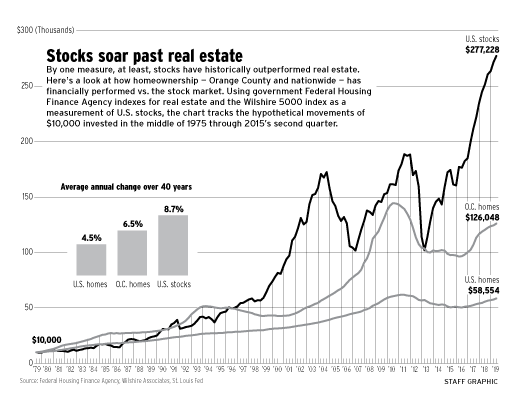The truth is, financial literacy has a secret that many financial educators (including your sincere one) are often unable to share with our students through supervision. Many of us were not properly financially educated as children, but luckily the internet has ushered in a new era of financial literacy by providing millions of people with useful financial information.
That’s why we’ve created Global Wealth Hub to simplify complex topics and give you the confidence to make informed financial decisions. Global Wealth Hub simplifies concepts that seem too complex to help you improve your financial literacy, a giant step towards financial independence. The more you understand various concepts, the more confident you will be when making financially sound decisions.
Financial literacy can give you the confidence to make informed decisions about budgeting, lending, saving, investing, and more, so you can achieve financial independence and let your money work for you. Financial literacy can also help you decide when and what type of insurance to buy. Financial education can help you live within your means, save for big purchases, avoid debt cycles, plan for a comfortable retirement, and more.
The Secret About Financial Literacy and Education
What is financial literacy? Simply put, it is the ability to allocate your income to various goals simultaneously. Financial literacy is a lifelong process of learning and improvement. As a result, you will be more confident and have the knowledge you need to make wise financial decisions. Here are some of the benefits of financial literacy. Read on to learn more about the importance of financial literacy. We will explore how financial literacy can help you build the American Dream and create a long, fulfilling retirement.
Financial literacy is a skill that can make or break your financial success
There are many ways to improve your financial literacy. One of the best is to develop a budget. Most people spend a lot of money on their mortgage. By paying it off early, you won’t have to worry about it again. You’ll also own your home free and clear. Financial literacy also includes saving money and making wise investments. In addition to budgeting, financial literacy is also important for your retirement, because it can help you live a more fulfilling life and have more time for your family and giving to others.
A key skill of financial literacy is knowing how income is taxed. Different sources of income are taxed differently. By understanding the different tax rates, you’ll be able to plan for your future while keeping your income in line. Personal financial management includes balancing all of these different components. By balancing these different financial elements, you’ll be better able to reduce debt and borrowing and make the most of your income.
As with any skill, financial literacy takes practice. However, if you consistently practice it, you’ll see results. By learning more about financial literacy, you can be well on your way to achieving financial well-being. To get started, here are six easy steps you can take. The effort will pay off for years to come. Just follow these steps to become financially literate.
In basic financial literacy, you should set aside a small monthly budget of $2000 for your expenses. Once you’re financially literate, you may come up with additional strategies to save money. For example, you might use the 80/20 rule to save 20% of your income. You can make that happen by putting aside $400 from every $2000 paycheck you receive. And if you are not a math whiz, it’s time to start learning about money management.
It is a process of continual improvement
The findings of recent surveys and research are clear. The results reveal a gap between men and women when it comes to financial literacy and education. Across countries, income levels, and ages, men are more likely to know the answer to certain questions than women. The gender gap highlights the difference between overconfidence among men and the lack of knowledge among women. Nevertheless, financial literacy is an essential tool to help both genders improve their financial futures.
Financial capability refers to the ability to use the financial knowledge and skills acquired to make better financial decisions. Financial capability is defined by the World Bank as the internal capacity to act in one’s own best interests, and it encompasses knowledge, attitudes, skills, and behaviors related to financial services. The process of achieving financial capability is a continuous process of improvement. The World Bank describes financial capability as an essential component of a strong economy and the ability to manage personal finances.
Despite its widespread benefits, the lack of financial knowledge still has many painful consequences. A lack of financial literacy can result in a low credit score, indebtedness, poor health, and bankruptcy. In fact, there is a connection between low financial literacy and gender inequality. Financial literacy can affect a person’s education, health, and happiness. And it’s also linked to gender inequalities, which can negatively affect their financial decisions.
As a result, financial literacy is a lifelong process. Without proper knowledge of money, people can’t make informed decisions or participate in the mainstream economy. It is therefore vital to promote financial education and financial literacy. The goal of financial literacy is to foster a sense of control over personal finances and use the power of money to create more life satisfaction. A recent report published by the Consumer Financial Protection Bureau (CFPB) highlights the benefits of financial literacy for the general public.
It gives you confidence to make informed financial decisions
The benefits of financial literacy and education go beyond managing your own money. It can help you save for important purchases, create a solid retirement savings plan, and live within your means. It also helps you learn about the importance of financial literacy, and how to avoid unnecessary expenses. The following are five key financial concepts to help you understand them better. Developing a strong financial literacy base is an excellent first step to achieving financial independence.
Lack of financial knowledge can have painful consequences. It can result in low credit scores, shrinking wealth, indebtedness, and even bankruptcy. Without financial knowledge, it’s easy to fall into bad habits and lose control of your finances. Financial literacy teaches you to plan your spending in advance, monitor your spending, and live within your means. By learning about these concepts, you can become a financial expert, and equip others with the knowledge to do the same.
Developing financial literacy begins before a person enters the workforce. In high school, most students take on their first part-time job. Parents can use this experience to teach their children about financial literacy. Saving money is the most important financial preparation tool. Young adults should begin to save money for the future. Investing in a retirement account will allow them to save for the future and avoid debt.
The importance of financial literacy can’t be stressed enough. It influences day-to-day financial management and long-term financial decisions. A lack of financial literacy is associated with expensive borrowing, poor debt management, and ineffective spending. We need urgent efforts to increase financial literacy. The Big Three questions are useful for measuring financial literacy and identifying vulnerable populations and areas of financial decision-making. The questions help policy makers and practitioners assess financial literacy, as well as individuals.
It can help you allocate your income toward various goals simultaneously
While low financial literacy acquisition may seem rational in some models, it may create externalities that have negative effects on the economy. For instance, a limited amount of financial knowledge can lead to higher equilibrium prices, greater use of the social safety net, and a decreased quality of civic participation. Such effects can impact neighborhoods, children, and families. However, financial education may help you to allocate your income more efficiently and effectively towards various goals.
While the literature contains numerous studies on financial literacy, there are few comparisons between individual self-assessment measurements and actual financial decisions. For example, a recent study by Hung et al. (2009) assessed the level of financial knowledge among college students and high school students. The study concluded that self-reported financial literacy did not always correlate with actual financial decisions. Moreover, consumers tend to overestimate their own financial knowledge.
It can help you prioritize them and make strides when you’re able to
Prioritizing tasks is essential for productivity. Doing so gives you more time for other activities and can improve your work flow. The first step in prioritization is identifying the tasks you have. Using a chisel or jotting down tasks can be helpful. You can then analyze each task, breaking it down into smaller chunks and determining their importance.
Identify your most important tasks daily. Doing the most important tasks first will prevent your mind from being split between tasks. Having a large list of tasks is not sustainable in the long run. Instead, list them by importance daily and quarterly. Then, make sure to complete those tasks in a timely manner. This will prevent brain splits, and you’ll be able to complete each task more effectively.
However, when students finish high school, they know very little about how to use credit cards, student loans, mortgages, and other types of consumer debt responsibly, let alone how to develop long-term financial health. plan. Develop and achieve personal financial goals. Students who are financially healthy can get better credit deals, make informed decisions about whether to work while they study, and understand the trade-offs between spending now and paying off later. Financially sound students understand all the costs associated with their bank or credit union account and know how much they add up each month.
People without financial knowledge are the same people who will file for bankruptcy, force the companies we all use to write off their debts, and in turn increase spending, which will affect your personal checkbook. Luckily, you don’t have to be a financial genius with your extracurricular schedule to help students and families understand financial concepts. A lack of financial literacy can have a devastating effect on adult consumer credit scores, affecting not only our ability to get loans and credit cards, but also our ability to buy or rent a house, and the type of work you can do. able to receive.
By sharing your financial knowledge, you can equip your colleagues with the tools to help them get out of financial trouble. Let this information work for you, especially if you want to create financial freedom and avoid dealing with creditors. There are thousands of financial products and services out there, and we believe we can help you figure out what works best for you, how it works, and really help you achieve your financial goals.
That’s why ready-made advice, investment seminars, and general IT solutions that give out static financial truths can never match personalized learning to help you find your truth. Global Wealth Hub explains complex financial concepts related to the situations we all face in simple and easy to understand terms using practical real life examples.
Join The Personal Wealth Creation (PWC)™ – Launching (50% Discount)
Learn How to Develop Wealth at a Personal Level.
On the Personal Wealth Creation, you will learn:
- Beliefs of The Multi-Millionaires
- How the Wealthy Manage their Money
- How to Increase Your Income
- How to Manage your Money & Reduce Your Expenses by 20-35%
- How to Build a Fortune by just Investing 15% of Your Income
- How to Design Your Millionaire Master Plan
- And Much More…
Helpful Links:
Homepage
About
Contact
Personal Development Partner





